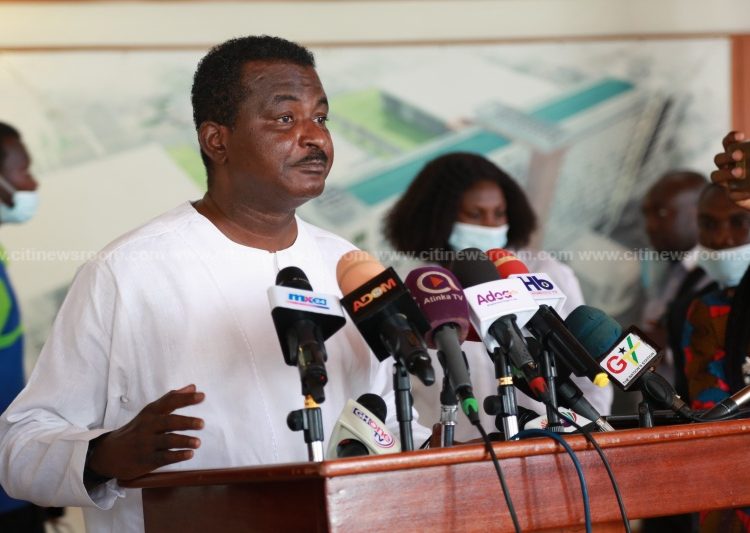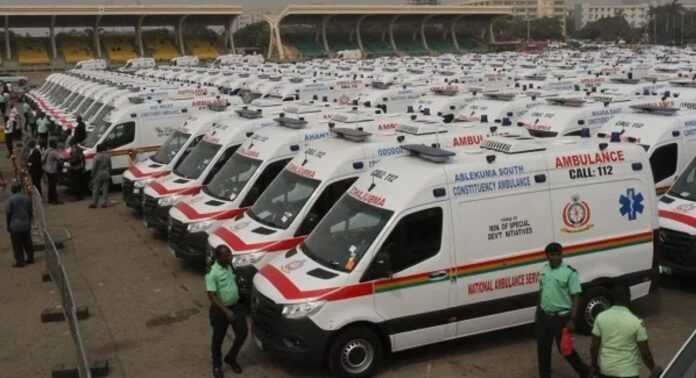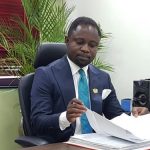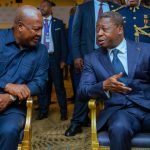Cape Coast South MP, George Ricketts-Hagan, has attributed delays in approving Ghana’s mini-budget to the unique dynamics of the 8th Parliament, marked by an equal number of lawmakers from the New Patriotic Party (NPP) and the National Democratic Congress (NDC).
Speaking on the Citi Breakfast Show on Wednesday, December 18, Ricketts-Hagan highlighted how the current hung Parliament has created significant challenges for decision-making and exposed gaps in Ghana’s constitutional framework.

He described the 8th Parliament, set to end its tenure at midnight on January 6, 2024, as an unprecedented and pivotal chapter in Ghana’s political history.
According to him, the equal representation of the two major parties led to frequent stalemates and increased partisanship, making it difficult for the House to efficiently conduct its business.
Ricketts-Hagan also pointed out that the hung Parliament has exposed gaps in the Constitution, which does not adequately address such an evenly split legislative body.
“The 8th Parliament has been a unique and interesting one. Having what is known as a hung Parliament has contributed to all the challenges that we are talking about. And it has also exposed certain gaps that we have in our constitution.
“We have gotten into the situation that we are in today as a result of this very [8th] Parliament because we have never experienced this situation in doing a budget because what normally happens is that the mini-budget is usually done before the elections.
“And it is usually done in November, and the assumption is that the government that is doing so will continue to be the government going forward, or the opposition party could become the government, and so there is some level of uncertainty that allows the current government to put that budget in a way like they may continue or they may not.”
























































![[FREE FREE MONEY] Predict and Win a Guaranteed GH¢200 From Us EVERY WEEK](https://wordpress.ghanatalksradio.com/wp-content/uploads/2022/02/Predict-and-Win-Final-09-03-2021-218x150.jpg)
![[Predict & Win – 8th/Oct.] WIN A Guaranteed ¢200 From Us This Week](https://wordpress.ghanatalksradio.com/wp-content/uploads/2021/10/maxresdefault-16-218x150.jpg)
![[Predict & Win – 2nd] WIN A Guaranteed ¢200 From Us This Week](https://wordpress.ghanatalksradio.com/wp-content/uploads/2021/09/maxresdefault-50-218x150.jpg)
![[Predict & Win – 25th] WIN A Guaranteed ¢200 From Us This Week](https://wordpress.ghanatalksradio.com/wp-content/uploads/2021/09/maxresdefault-36-218x150.jpg)
![[Predict & Win – 18th] WIN A Guaranteed ¢200 From Us This Week](https://wordpress.ghanatalksradio.com/wp-content/uploads/2021/09/maxresdefault-23-218x150.jpg)







![[National cathedral] See full list of churches that have contributed since 2018](https://wordpress.ghanatalksradio.com/wp-content/uploads/2020/09/Ghana-National-Cathedral-GhanaTalksRadio-100x70.jpg)



